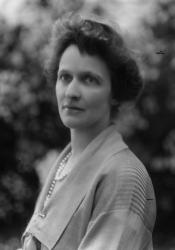First woman in the House of Commons
On December 1st of 1919, Nancy Astor took her seat in the House of Commons as the first female MP in British history to take a seat in parliament. She had been elected to Parliament of Plymouth Sutton in November 1919, she replaced her husband who had previously been the MP. She was elected following a by-election on 15 November 1919, although she had to wait until november 28 for the results to be announced, where it turned out she received more votes then the Labour and Liberal candidates combined. She entered the House of Commons on December 1 to take her oath, sponsored by Prime Minister David Lloyd George and Lord President of the Council and former Prime Minister Arthur Balfour. Although Nancy was the first woman to take a seat in the House of Commons, she is not the first elected. That was achieved in 1918 by Constance Markievicz, a Irish Republican who was detained in Holloway Prison at the time and, as a member of Sinn Fein, disqualified herself by refusing to take the oath.
Nancy Astor needed to have her wits about her in order for her to survive the male dominated world of politics. She gained attention for being someone who did not follow the rules- for example, when David Lloyd George was called to swear her in he set off before the others as was pulled back and scolded by Nancy. Another occasion was on her first day in the House of Commons, she was called to order for chatting with a fellow House member, not realising she was who was causing the commotion. She quickly became known for her outspoken views of specific issues, including advocating women's rights and stricter restrictions on alcohol. Yet, despite claiming to be an ardent feminst, suffrage campaigners were initially dismayed that she never had ties to their movement. Nancy won seven elections between 1919 and 1935 and was MP for Plymouth Sutton for 26 years until the 1945 election when she decided not to stand on the advice of both the Conservative Party (who felt she had become a political liability) and her husband who refused to support her running for office again. In the same year that she retired, 24 women became MPs and took their seats in parliament.

